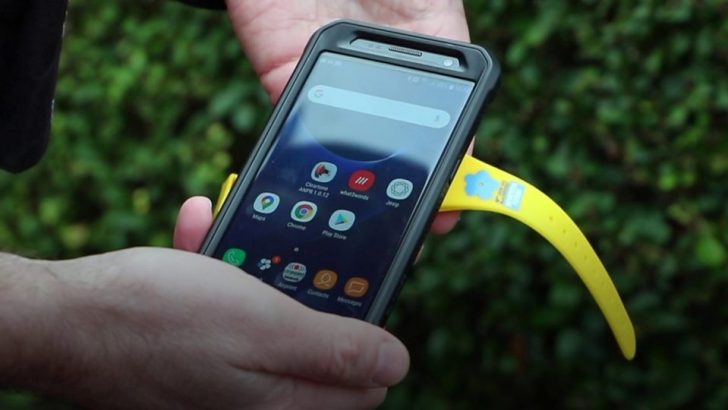Wristbands to help find missing people with dementia
Wristbands which can help locate missing people with dementia have given families “peace of mind”, according to a BBC report.
The bracelets, developed by emergency services and charities in Somerset, store essential information about the wearer including their name and next of kin.
The information can be accessed by an app when a mobile is held nearby using Near Field Communication (NFC) technology – the wearer’s personal information can be accessed using the NFC app.
Avon and Somerset Police, charity Senior Citizen Liaison Team and Avon Fire and Rescue Service developed the wristband, with a manufacturing cost of £1, as part of their Dementia Safeguarding Scheme.
The scheme is currently limited to the Somerset region, but hopes are high that it will prove successful.
Sergeant Stuart King said calls to missing persons with dementia come with a “high cost” for emergency services and hopes the wristbands will help families find their loved ones before having to report them missing.
Third vaccine showing signs of success
Studies suggest the Oxford and AstraZenaca produced vaccine is up to 90% effective, and may prevent transmission.
In studies of more than 22,000 people in the United Kingdom and Brazil, the vaccine was 90% effective in preventing Covid-19 when people got a half dose of the vaccine followed by a full dose one month later, AstraZeneca said November 23 in a news release.
When participants got two full doses of the vaccine one month apart, its effectiveness dropped to about 62%, the company reported.
Overall, the combined results showed that the vaccine had an average effectiveness of 70%.
AstraZeneca’s vaccine may be easier to distribute than those from Pfizer and its German collaborator BioNTech and from Moderna because the vaccine doesn’t need to be frozen as the other two do.
It may be less expensive than the other vaccine as a result.
‘Good news’ as antibiotic use drops
Antibiotic prescriptions have dropped 20% during the pandemic, which doctors consider “good news” as antimicrobial resistance remains a threat.
Up to the end of October, the number of private and medical/GP visit card antibiotic prescriptions fell by almost 700,000 compared to the same period last year, according to new data from the Health Service Executive.
Irish College of General Practitioners lead adviser on Covid-19 Dr Nuala O’Connor told The Irish Times the decline is an “amazing drop-off” and a “good news story” to emerge from the pandemic.
Commenting on the threat of antimicrobial resistance in the community, and the “frightening statistic” that it is predicted to be responsible for more deaths than cancer globally by 2050, Dr O’Connor said that the challenge after Covid-19 would be in sustaining the welcome reductions.
According to the HSE, using antibiotics needlessly “allows bugs that cause infections to build up resistance against antibiotics and renders them useless over time”.



